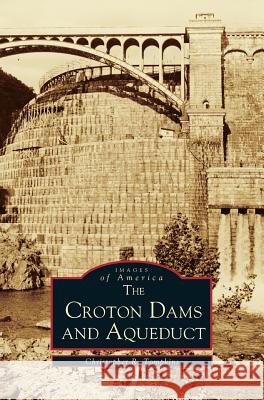Croton Dams and Aqueduct » książka
Croton Dams and Aqueduct
ISBN-13: 9781531602796 / Angielski / Twarda / 2000 / 130 str.
This collection of rare photographs chronicles the construction of one of the largest masonry dams ever built. From the beginnings of the first Croton Dam, completed in 1842, and of the new dam, which was finished in 1907, up to the present day, The Croton Dams and Aqueduct provides a stunning portrait of the entire project and the region that it impacted: New York City and Westchester County. As early as the 1770s, New York considered creating waterworks and even proposed damming area rivers, including the Hudson. With disease and fires blamed on the lack of water, plans were created c. 1830 to dam the Croton River. By 1842, water from the first dam flowed into New York City from Yorktown. Built to provide enough water for "centuries," the first dam was obsolete by the 1880s. Exponential growth from immigration created the demand for more water, and New York built the New Croton Dam. The new dam not only provided clean water for New York's burgeoning population but also spawned a new community of immigrant workers in the once Anglo community of Westchester County.
This collection of rare photographs chronicles the construction of one of the largest masonry dams ever built. From the beginnings of the first Croton Dam, completed in 1842, and of the new dam, which was finished in 1907, up to the present day, The Croton Dams and Aqueduct provides a stunning portrait of the entire project and the region that it impacted: New York City and Westchester County. As early as the 1770s, New York considered creating waterworks and even proposed damming area rivers, including the Hudson. With disease and fires blamed on the lack of water, plans were created c. 1830 to dam the Croton River. By 1842, water from the first dam flowed into New York City from Yorktown. Built to provide enough water for "centuries," the first dam was obsolete by the 1880s. Exponential growth from immigration created the demand for more water, and New York built the New Croton Dam. The new dam not only provided clean water for New Yorks burgeoning population but also spawned a new community of immigrant workers in the once Anglo community of Westchester County.











